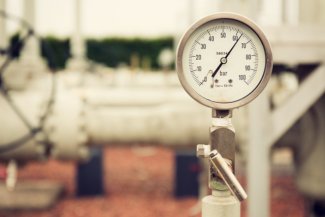Naftogaz’s victory over Gazprom: the Arbitral Tribunal’s award on the transit contract

On 28 February, Naftogaz announced that the Arbitral Tribunal in Stockholm had handed down a favourable ruling for the Ukrainian side in its dispute with Gazprom on a contract for the transit of Russian gas via the territory of Ukraine. The proceeding was initiated in 2014 at the request of the Ukrainian company, which had demanded $15 billion compensation from the Russian company for not fulfilling some items in the transit contract from January 2009. For its part, Gazprom filed a counter-suit and demanded US$7 million compensation for the gas Naftogaz had allegedly used (without the Russian side’s agreement) from the amount sent via the Ukrainian gas network, as well as $50 million in compensation for the overpayment of transit fees (due to the fall in the prices of the gas which had already been sent). According to Naftogaz, the arbitrators have completely rejected Gazprom’s suit, and declared that it must pay the Ukrainian side US$4.63 billion in compensation for transfers since 2009 of less gas than the 110 bcm a year referred to in the transit contract of January 2009.
At the same time, the Arbitral Tribunal rejected two other claims by Naftogaz concerning the following:
1) a revision of the transit tariffs, stating that the Ukrainian request did not meet the procedural requirements, and
2) the need to change certain items in the contract so that they would comply with the legislation of Ukraine and the EU (mainly those connected to the so-called Third Energy Package).
However, the head of Naftogaz Andriy Kobolev stated that negotiations with Gazprom on this matter will begin in the near future.
Gazprom representatives confirmed the report by the Ukrainian side in an official statement. Gazprom considered the decision to be unjust, and announced that it would appeal using all means available.
Commentary
- Naftogaz’s victory in its dispute with Gazprom could have been considered expected, although it was surprising both in its scale and because the Arbitral Tribunal unanimously upheld the item in the transit contract stating the need for Gazprom to transfer 110 bcm of gas annually, although this is not the classic ‘ship or pay’ formula. It seems that instead the arbitrators took the arguments of the Ukrainian side concerning the transit rates into consideration.
- The Court’s verdict represents another positive settlement of arbitration for Ukraine concerning the Russian-Ukrainian gas relationship. In the final award on the contract for gas supplies on 22 December 2017, the arbitrators rejected Gazprom’s claim of $56 billion in respect of the ‘take or pay’ clause, marketised the principles of bilateral gas cooperation by modifying the pricing formula, reduced the contractual obligations of the Ukrainian company, and abolished the re-export clause.
- The Arbitral Tribunal’s award will significantly improve Naftogaz’s financial situation, as it needed funds to purchase gas over the next few months; and it has significantly boosted the Ukrainian company’s position in its future negotiations with Gazprom on gas supplies and the next transit contract (the current one is valid until the end of 2019). The award also nullifies the most severe consequences of the Arbitral Tribunal’s ruling concerning the contract for gas deliveries, which had been very favourable for the company; it imposed an obligation to settle Naftogaz's debt to Gazprom for gas deliveries from Russia during the periods of November-December 2013 and April-June 2014, setting the amount of that debt at $2.019 billion. This is also important from the prestige point of view, as it improves the international image of the Ukrainian company, which in recent years had regularly (and often effectively) been undermined by Gazprom, which portrayed Naftogaz as an unreliable entity.
- It is also noteworthy that for ‘formal reasons’ the Arbitral Tribunal rejected the possibility of higher transfer rates for the transit of Russian gas via Ukraine, which was one of the important elements in Naftogaz’s lawsuit. Since 2016 the Ukrainian side had sought to revise the contract for transit, including by raising the transit fees (in accordance with the energy market regulator’s original decision) and at the same time ceding the 2009 contract to a Ukrainian legal entity other than Naftogaz. This is due to the process of Ukraine’s implementation of the Third Energy Package, which assumes the unbundling of Naftogaz. According to reports by the management of the Ukrainian group, the arbitrators considered that the issue of tariffs and the contract should be settled in direct talks between Naftogaz and Gazprom. The Russians, meanwhile, have not accepted any revisions of the contract, with the consequence that the process of creating a new operator of gas transit pipelines out of Naftogaz, the Gas Mains of Ukraine (MGU), which was begun in autumn 2016, has been blocked. As a result, when the contract expires at the end of 2019, the entire sum of the fees for the transit of Russian gas via Ukraine will go to Ukrtranshaz, a subsidiary of Naftogaz which controls the transit gas pipelines and underground gas storage.
- The decision of the Arbitral Tribunal will also strengthen the position of the leadership of Naftogaz, its president Andriy Kobolev and his deputy Yuri Vitrenko. For several months, these two have been in dispute with the Ukrainian government, because of the divergence in the two sides’ visions for the further reform of the Ukrainian gas sector, as well as their control over Naftogaz and the financial flows it generates. The latest manifestation of this was the government’s decision of 14 February to transfer the corporate governance of Ukrtranshaz to the MGU, which is subordinate to the Ministry of Energy and Coal. The decision, which is to come into force 10 days after the Arbitral Tribunal in Stockholm’s verdict becomes legally binding, is an expression of the government’s distrust of Naftogaz’s leadership, and contradicts the shareholding model for Naftogaz favoured by Kobolev and Vitrenko. Despite the dispute, however, it would be more difficult than ever before for the government to sack Naftogaz’s executives, who are not under its control, and who enjoy strong support from the West. However, despite the favourable resolution of the dispute with Gazprom, the leadership of Naftogaz will continue to be moved away from taking the key decisions on the future shape of the gas sector. However, we may assume that the final verdict of arbitration in Stockholm will lead to an acceleration in the reform of Ukraine’s gas sector – something which had been slowed down over the past year. However, the future shape of this reform remains unknown, because Kiev’s activities in this area are still currently lacking in transparency.
- The Tribunal’s’ award is a significant defeat for Gazprom. Indications are that the main cause of Gazprom’s failure in the dispute related to the transit contract was its failure to observe the transit obligations due to the unilateral change of the transmission routes for Russian gas to its European consumers (especially the increase in transit via the Nord Stream gas pipeline). In this way, in a sense Gazprom became a victim of the energy policy conducted by the Russian government. In many ways the verdict is bad for Russia. First, the need to pay compensation to Naftogaz will have negative financial consequences for the Russian group. The amount to be awarded coincides almost exactly with the free net funds which Gazprom had at the end of 2016, around $3 billion (full data for 2017 will only be published at the end of March this year); this figure also represents around 5.5% of the Russian company’s total debt (according to data for the first three quarters of 2017). Second, the company’s loss in its suit against Naftogaz will signify a loss of its prestige. For many years representatives of both the Russian authorities and Gazprom accused Ukraine of not being a reliable trading partner, claiming that Naftogaz and the Ukrainian government regularly violated their contracts. Thirdly, the balance of the Tribunal’s awards, which is unambiguously beneficial for the Ukrainian side, will worsen Gazprom’s negotiating position in any talks about the new transit contract. It is essential for the Russian side to come to an agreement on this, regardless of whether the Nord Stream 2 pipeline will be built or not.
- Although Gazprom has announced that it is appealing the ruling, the chances of a favourable outcome for the Russia side seem unlikely; procedural issues may form the basis of such an appeal, but during the course of the proceedings neither side had drawn attention to any failure by the Tribunal in this regard. Thus Gazprom is most likely to implement the Tribunal’s ruling while criticising the arbitrators’ ‘inconsistency’ in their reasoning (recognition of the legitimacy of reducing the amounts of gas contracted in the case of the contract for supplies of Russian gas to Ukraine, taking the changes on the market into account; rejecting this argument in case Gazprom reduces the amounts of gas sent via Ukraine to European consumers). The Russian side will most likely want to pay the amount incurred in the form of deliveries of gas, because from the ruling regarding the gas delivery contract, it turns out that the Ukrainian side is obliged to import 4 bcm of gas annually from Russia (such a scenario seems more likely thanks to a report from 1 March in the newspaper Vedomosti, which says that Gazprom has returned to Naftogaz the cash which the Ukrainian side had previously transferred to it as pre-payment for March's delivery of gas from Russia). However, it seems unlikely that Gazprom has decided to reduce transfers of gas via the Nord Stream pipeline, something which the Ukrainian side will certainly demand due to the Arbitral Tribunal’s verdict (the transit contract is valid until the end of 2019). Besides, the Russian side will certainly step up its lobbying for the implementation of the Nord Stream 2 project. With regard to the above, we should expect further chapters in the Russian-Ukrainian gas dispute.





